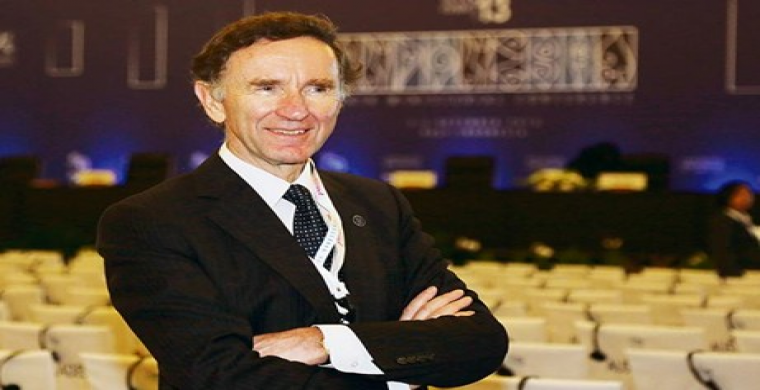Plan to groom 'talent' for high office in C of E
By Paul Handley
www.churchtimes.co.uk
Dec 12, 2014
A RADICAL overhaul of the Church of England's leadership is under way.
A key report, still unpublished, sets out a programme of "talent management" in the Church. The report has been signed off by the two Archbishops, and a £2-million budget has been allocated. It was discussed by all the bishops in September, and the House of Bishops on Monday. A spokesman said on Wednesday that the Bishops "welcomed the implementation plan prepared in the light of those discussions. Details will be published next month."
The Church Times has seen the report, Talent Management for Future Leaders and Leadership Development for Bishops and Deans: A new approach, prepared by a steering group chaired by Prebendary the Lord Green of Hurstpierpoint, the former HSBC chairman. It speaks of a "culture change for the leadership of the Church", and outlines a two-stage process.
In stage one, which is in the process of being implemented, all diocesan bishops and deans are expected to attend a residential modular development programme run by a secular university or business school. The modules are entitled: "Building healthy organisations", "Leading growth", and "Reinventing the ministry".
In between modules, the bishops and deans will be expected to review their actions within the framework of theological reflection and prayer, which includes a spiritual retreat. The programme is to be mandatory.
The more radical move comes at stage two. The Green report proposes that training for senior leadership in the Church - bishops and deans, but also archdeacons, incumbents of large churches, and heads of mission societies - takes place before appointment.
For this to happen, a "talent pool" of up to 150 "high-potential individuals" will be identified and enrolled in an intensive training course, lasting up to five years, by which time they can be expected to have obtained senior appointment. The pool will be overseen by the Development and Appointments Group (DAG), and managed by an enlarged staff under Caroline Boddington, the Archbishops' Secretary for Appointments, based at the Wash House in the grounds of Lambeth Palace.
After two years of intensive, modular training, talent-pool members will be invited to join their bishop's senior staff team to learn how to run a diocese. During that time, they will also be expected to undertake projects "with relevance for the National Church", and be available for secondment.
Individuals will be rated "early promise", "exceptional potential", or "ready now". The names of those deemed ready will be proposed to committees appointing the next generation of bishops and deans.
Those who have been in the pool will form an "alumni network", tracked continually by the "talent database" and available for mentoring and coaching future leaders. Anyone failing to fulfil his or her potential will be asked to leave.
The Green report identifies three key elements of church leadership:
- contributing to the Common Good, in essence involvement in local and national politics;
- reshaping ministry, i.e. developing the gifts of lay and ordained people;
- leading the Church for growth, implementing best practice for spiritual and numerical growth.
The report is virtually silent about the shortcomings of the present system of preferment in the C of E. Its stated intention, though, is to see leaders emerge from "a wider variety of backgrounds and range of skills than is currently predicted".
And it speaks of the urgency of the task: "So often in the face of real opportunity, many organisations, including the Church, do too little too late. We 'get there late,' as it were. Our commitment is to 'get there early,' while there is still time for imaginative response, agility, and a range of possibilities."
Lord Green's steering group expects there to be some resistance among existing bishops and deans, particularly over the need to find time in 2015-16 diaries that are already full. It says that support for the programme from the Archbishops is vital.
It also acknowledges the problem of language. "Currently, corporate labels such as 'talent management', 'leadership development programme', 'talent pool' and 'alumni network' have been used. These should perhaps be replaced by terms meaningful to the Church."
The Dean of Christ Church, the Very Revd Professor Martyn Percy, is critical of the theological basis behind the programme. Writing in today's Church Times, he says that the Green report "has no point of origination in theological or spiritual wisdom. Instead, on offer is a dish of basic contemporary approaches to executive management, with a little theological garnish."
The plan is to publish the report in January, before the General Synod's February meeting. Similar review groups are looking at a simplification of the Church's structures and the allocation of resources.
END














